Across Canada, there are impact-oriented evaluators, consultants and trainers who work with social purpose organizations that are aligning with the Common Approach to Impact Measurement. They come from diverse backgrounds and they work in a wide range of sectors, but their work reflects the five essential practices of impact measurement called the Common Foundations:
- Plan your intended change
- Use performance measures
- Collect useful information
- Gauge performance and impact
- Report on results
Meet the champions:
More bios coming soon.
Bryn Sadownik – Manager, Evaluation and Community Impact – Vancity Community Foundation
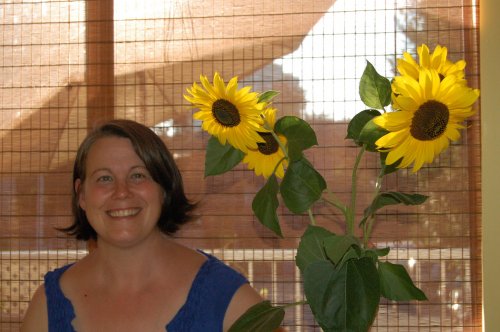
Background: Fifteen years ago, Bryn was applying skills developed through her recently completed Master’s program in Resource and Environmental Management at Simon Fraser University (SFU) to work as a consultant and researcher. At the time, she was developing tools to help Canada better understand how to reduce greenhouse gas emissions, and to understand the relative impact and cost of different policy and program approaches so that Canada could meet its international climate change obligations. As important as this work was, Bryn was interested in applying her evaluation and assessment skills in a community context. So, when the opportunity to lead a new pilot program in impact assessment emerged at Vancity Community Foundation, she jumped on it. In this new role she collaborated with over twenty social enterprises and investors to create a framework that could better organize and structure evaluation systems for this emerging sector. This position has allowed Bryn to use her knowledge in assessment and realize her passion for grassroots-led leadership to enable community-based change.
Approach to impact evaluation: Bryn enjoys the challenge of bringing groups together to explore new possibilities in measuring impact. She works with community organizations to strategically plan, manage and communicate the value of their work, and in particular the measurement of social and environmental impact. Many of these organizations might already be doing evaluation, but they are often searching for systems and structures that will move them from being responsive to funders or investors to being the ones “in the driver’s seat.” After establishing these systems, groups can create unique snapshots of their key measures, and can customize their reporting for each audience such as boards, funders, or clients. In other words, the framework helps make the data usable – a piece that Bryn believes is often missing from the evaluation process.
Using the Common Foundations: Bryn is already considering how Vancity Community Foundation might use the Common Foundations, and she is very excited about the potential of the Common Foundations to advance and strengthen the sector. She will be working with the Foundation and the Demonstrating Value Resource Society to integrate the icons and information into their workbooks and resources. She believes that the Common Foundations will help to foster the connections between existing systems and resources and provide more consistent language for everyone in the evaluation sector. It is so important to share the various resources used to measure impact and frame them in a way that makes sense for people on the ground – that is where Bryn sees significant value of the Common Foundations.
Laurie Ringaert – Principal Consultant, Change Weavers Consulting
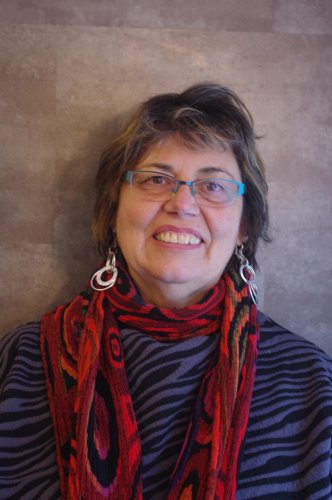
Background: Laurie, who holds degrees in Zoology, Occupational Therapy and Community Health Science, spent much of her early career as a researcher. About ten years ago, when she applied for a position at Seattle King County Public Health as an Evaluator, she realized that while she had been defining herself as a researcher, a new way to frame her skills and experience was as an evaluator. “The light went on” for her when she was reading Michael Quinn Patton’s book Developmental Evaluation: Applying Complexity Concepts to Enhance Innovation and Use – and with this large scale project in Seattle she was working as a developmental evaluator on a collective of projects related to making an impact on healthy eating/active living. It was through this time that she mentally switched to calling herself an “impact evaluator.”
Approach to impact evaluation: Laurie enjoys working in the realm of real world change: working with in systems change, complexity and understanding social impact. She believes ‘impact’ means different things to different people – but one key element for her is taking the time to step back and consider what the impact COULD BE, rather than assuming what the impact SHOULD BE. In other words, impact evaluators are practitioners who can identify the real impacts of a project through the process, rather than just looking for ways to demonstrate the accomplishment of the pre-set goals. Laurie believes in working in a participatory and a culturally and contextually responsive way with her clients. Together they identify valuable impacts. This often results in the discovery of unexpected, emergent and exciting layers of impact from the project.
Using the Common Foundations: Laurie believes the Common Foundations will be a valuable tool, both for herself and for her clients, when framing the steps for evaluation projects. She is very excited about the possibility of scaling the data collection up nationally through the use of data portals. This could be a game-changer for how organizations and funders in Canada understand impacts. She envisions a system where everyone could be using the same high-level metrics and platforms, resulting in the opportunity for each organization to see how their smaller projects contribute to the whole system of change.
Garth Yule – Managing Director, Canada, Junxion Strategy
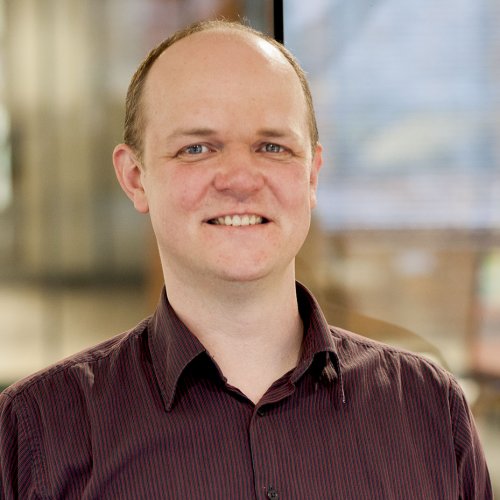
Background: Armed with an undergraduate degree in communication and community economic development, Garth worked passionately for environmental non-profits and university students’ unions through the early 2000s, but he grew frustrated with the limits of non-profit advocacy and community organizing as tools to hold large corporations accountable for their social and environmental impacts. His impression was that there were not enough tools and methods available to businesses for anything other than increasing short term profits. He felt that there must be ways to develop and integrate tools that would help businesses to do better. This interest led him to pursue his MBA with a focus on strategic management to better understand the language and culture of business. Garth now uses that expertise to guide his work at Junxion Strategy (https://junxion.com) to engage with businesses as they move towards models that value and assess social and environmental impacts, and to work with non-profits to scale their innovative programs and initiatives through market-based models. He has seen a significant shift in attitudes over the past twenty years as all types of organizations integrate comprehensive approaches, like the UN Sustainable Development Goals, to understand impact in a longer-term global context. The enabling conditions that supported this shift in social and business norms include the rising urgency of the climate crisis, public resistance to economic austerity policies, and more availability of information on corporate performance, driven by the proliferation of social media and cloud-based software tools for reporting organizational impacts.
Approach to impact evaluation: Garth enjoys collaborating with groups to understand their day-to-day work in context of the broader impact they are trying to make. He recalls a recent Theory of Change workshop he facilitated for a not-for-profit in the UK that promotes independent journalism and democratic news media. Through an engaging outcomes mapping session, the group was able to step back and more clearly see how to assess their contributions to a system of public discourse that fosters a healthy democratic state. Distinguishing leading indicators from longer term impacts allowed them to focus their measurement efforts more strategically in support of goals for fundraising as well as content quality manner.
Using the Common Foundations: Garth uses the Common Foundations in his presentations to groups who may be new to impact measurement, and starting a new measurement initiative, or building on their existing measurement capacity. He believes that a clear minimum standard for impact evaluation is an essential complement to the process of developing mission, vision, strategy, and operational plans for every organization regardless of size.
Garth would like to see increased coordination of funders and grant-makers when it comes to impact evaluation. There are significant time constraints and capacity barriers for non-profits and social enterprises that are compounded when each funder wants the organization to report on unique outcomes. Existing power dynamics limit grantees’ ability to change these requirements on their own, but the Common Approach supports them to advocate together for a flexible and shared standard for outcomes reporting in the sector.
Cathy Lang – C. Lang Consulting
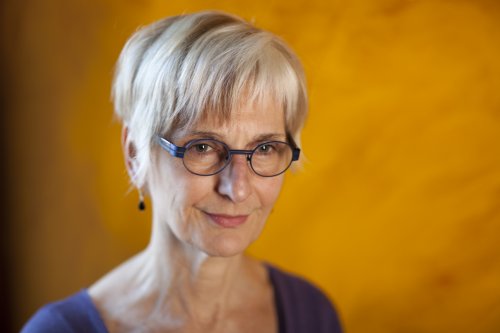
Background: Cathy began her career as a social worker with a strong focus on community development and youth engagement working in inner city Toronto. After completing her Master’s degree in adult education, she began working with the Ontario co-operative sector designing curriculum materials, facilitating workshops, and evaluating outcomes. It was there that she was first introduced to the world of social impact businesses. Eventually she became the manager of the cross sectoral co-operative federation in Ontario. When she launched her consulting business in 2001, it was to immerse herself in a variety of social impact and systems change projects from grassroots community organizing to cross regional and intersectoral collaborations that contributed to community revitalization and local economic development. As consultant she’s played diverse roles, including program designer, researcher, strategic planner, business developer, and sector builder. Cathy has coached numerous social enterprises in designing and testing their social value propositions. Given her exposure to co-operatives in rural and northern communities, one particular focus of Cathy’s work has been promoting rural community development and nurturing ecosystems of support for social enterprise. Cathy has also spent much of her consulting career evaluating and supporting programs committed to the empowerment of girls and women.
Approach to impact evaluation: Cathy’s training in adult education and social work has ingrained in her an understanding of systems thinking – so her approach to evaluation is always linked to overall program design and takes into account organizational and community contexts. She notes some key challenges in impact evaluation: capacity and resources for evaluation in the social sector are generally inadequate; as evaluation becomes increasingly professionalized it’s divorced from design and developmental processes; and evaluation and learning are often not shared within and across organizations and their funders. She knows there is so much more learning to be done about social impact that can contribute to effective practice and community vitality when stakeholders see the big picture context, link their evaluation with action, and communicate results.
Using the Common Foundations: Cathy is now focussing her time on projects that capture her imagination and advance the social sector and systems change. She continues to work with social enterprises as well as intermediaries and funders of social impact organizations. She can see how the Common Foundations will help these groups understand the fundamental steps involved in planning and evaluating their social impact. She believes the Common Foundations will be a valuable tool in particular to prompt groups to ask themselves, “What are we trying to achieve?”
Rachel Berdan, Social Enterprise Program Manager & Coach, Pillar Nonprofit Network
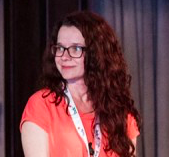
Background: Like many of the Common Foundations Champions, Rachel is a story-teller at heart. Before becoming a Social Enterprise Program Manager and Coach last year at Pillar Nonprofit Network, Rachel considered herself a communicator, and worked for years using story-telling to describe the impact that organizations were having in their communities. She spent eight years with a digital marketing agency, rTraction, where she ultimately served as Chief Operating Officer and led the organization through B Corp certification; that process is what made her realize the close link between storytelling and impact evaluation. She spent the year prior to joining Pillar helping B Lab to grow the B Corp movement through stories about existing B Corps and campaigns about the potential of using business as a force for good. She is now able to use that expertise from both areas to provide leadership within the social enterprise community in Ontario. Rachel is engaged with multiple social enterprise programs: the Libro Social Enterprise Incubator, which sees two cohorts of up to 12 social enterprises leaders per year, as well as a series of programs under the Women of Ontario Social Enterprise Network which serves women and non-binary social entrepreneurs, particularly those hat have been traditionally marginalized in business circles. Rachel is currently undertaking her Masters in Global Leadership and is able to use her knowledge of evaluation and social enterprises to inform her course and thesis work.
Approach to impact evaluation: Rachel uses her training in B Corp certification, and her background in story-telling to guide much of her approach to impact evaluation. She believes strongly that the B Corp certification is one useful framework for social purpose businesses to define their accountability and ensure that they integrate evaluation into both their planning and their ongoing operations. She believes that the biggest challenge facing groups who are undertaking impact evaluation is working to define their change. She understands a piece of her role is to help organizations distinguish between ensuring good business practice, such as acting socially responsible or treating their employees well, and understanding and tracking the external societal impacts that can result from the organizations work.
As she works with early-stage social enterprises, Rachel often sees that leaders can get overwhelmed by all of the first steps to starting up, making it difficult to plan for evaluation. When this happens, she uses her strong background in story-telling to personalize the experience and remind groups of their core purpose.
Using the Common Foundations: Rachel sees the Common Foundations as an opportunity to root the social practice sector in a shared language – a gap that she has observed. The foundations have the ability to unify the goals of multiple partners towards common ends. Already she has integrated the Common Foundation language into two of her key workshops that she delivers to her cohorts. The first workshop leads the groups through the process of identifying the problem they want to solve and building a theory of change around that issue; the second workshop assists participants as they define the ways to measure the change. Overall, Rachel believes the Common Foundations will provide an excellent tool to frame the ongoing social change conversations, both with her cohorts and within the sector as a whole.
Kerri Klein – Director, SHIFT Collaborative
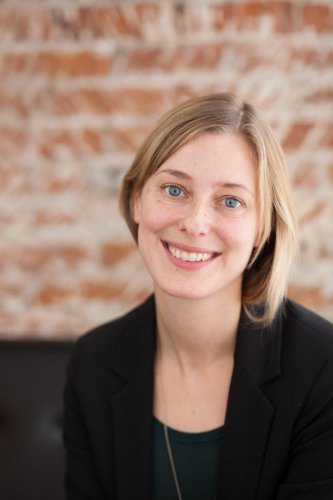
Background: Kerri worked for almost 15 years in non-profit and government organizations that were seeking ways to effect change. She worked in roles where she both sought funds and granted funds, which allowed her to see both sides of the evaluation process. After nearly two decades she wanted to try something different. She and four other change-leaders established SHIFT Collaborative, a registered cooperative that helps people make progress on tough social and environmental challenges together. Using models such as theory of change and collective impact, Kerri sees herself as a “critical friend” to her clients, as they work to change the conditions that enable the challenges experienced by the social and environmental sectors as they in turn work on “wicked” problems.
Approach to impact evaluation: For years Kerri felt like she participated in what she calls the “dance of deception” where organizations pretended they had answers at the completion of the project and the funders pretended to believe them. In reality, impacts that result from complex projects are far more nuanced and require a different level of contextual analysis. She works with groups to take an iterative approach to evaluation that follows a system of reflection/action/learning/adapt. This allows groups to embed strategic learning into the process of evaluation. She moves groups from “what happened” to the lens of understanding those outputs under a framework of “so what? now what?”. This helps groups deepen their understanding of their impact and moves evaluation from simply transactional – what the funder needs to know – to transformational – how the organization understands its role in creating sustained positive change.
Using the Common Foundations: Kerri describes the Common Approach as rigorous, consistent and adaptable. She believes the CFs create a foundation and allow for nuance. She has found that too often evaluation and strategy are separated from each other. Evaluation practitioners can use the CF to integrate strategic learning into their work in a more focused way.
She believes the Common Approach, as an overall framework, will allow practitioners to deepen the understanding of difficult contexts. She is especially excited about the data collection possibilities. One core challenge that exists in the evaluation realm is “data overwhelm” where organizations are collecting tons of data, but do not have accessible or affordable methods to organize and analyze their results. The possibilities of shared data platforms that would not only help to organize the information of the project, but also contextualize it within the broader sector work across the country, are very intriguing to Kerri.

